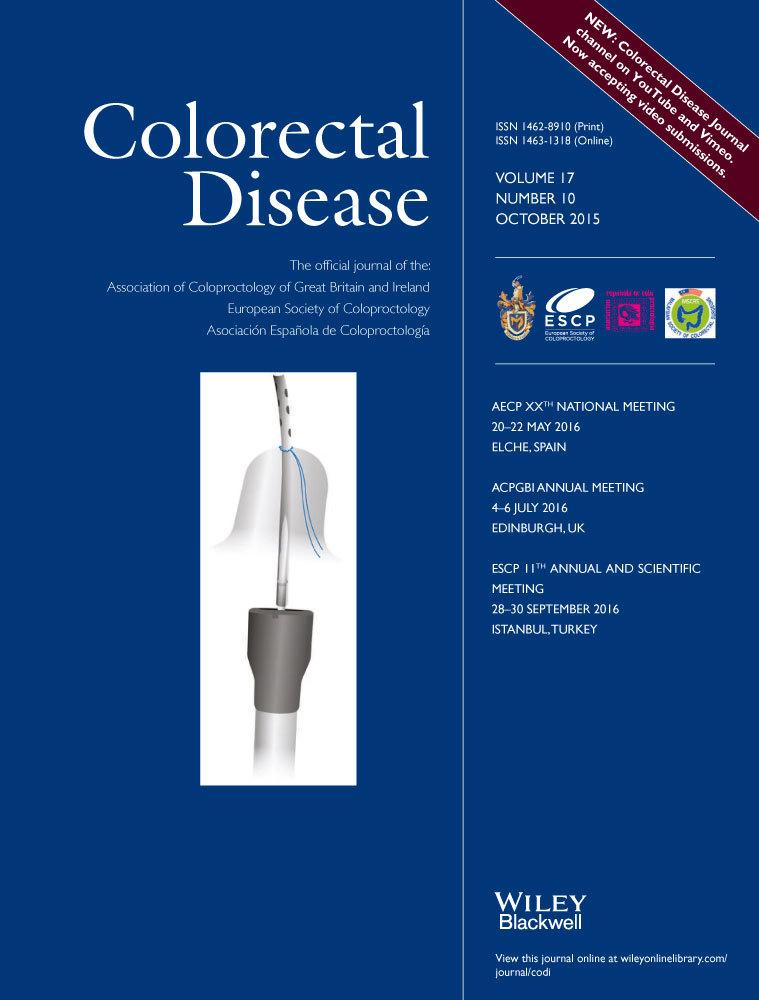Lack of effect of sacral nerve stimulation for incontinence in patients with systemic sclerosis
Abstract
Aim
Systemic sclerosis (SSc) is a multisystem disorder of unknown aetiology leading to the deposition of excessive connective tissue in the skin, blood vessels and internal organs. Gastrointestinal involvement occurs in 90% of cases and the prevalence of faecal incontinence (FI) is 38%. This study comprises the largest case series assessing the efficacy of sacral nerve stimulation (SNS) treatment for incontinence in this patient group.
Method
A retrospective analysis on prospectively collected data was performed on all SSc patients from our two centres who had undergone SNS for FI.
Results
Ten female patients of mean age of 54 (37–72) years had temporary SNS performed. The mean duration of FI was 13 (2–25) years. All had passive FI. Each patient had preprocedure anorectal physiology and endoanal ultrasound examinations documenting internal sphincter atrophy/fragmentation or reduced anal resting pressure. Overall there was no statistically significant difference (P = 0.57) in the total Wexner incontinence scores before (mean 15.1 ± 2.6 SD) and during temporary SNS procedures (mean 13.1 ± 3.6 SD). Two patients with a significant improvement went on to have permanent SNS with only one achieving a favourable outcome at 1 year.
Conclusion
This study showed that SNS failed to reduce episodes of leakage in nine out of 10 patients with systemic sclerosis affected with incontinence.




